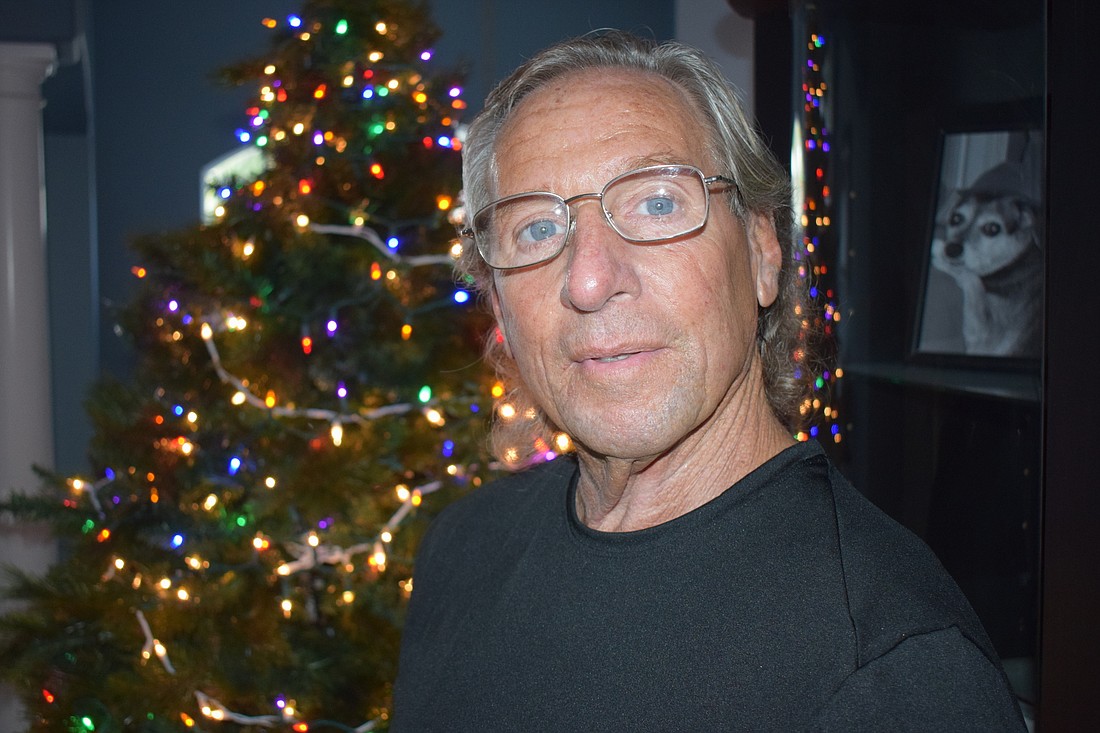- November 14, 2024
-
-
Loading

Loading

DID YOU KNOW?
*In 2019, an estimated 56,770 people will be diagnosed with pancreatic cancer in the U.S.
*Pancreatic cancer is the third-leading cause of cancer-related death in the U.S., behind only lung cancer and colorectal cancer, and is expected to become the second-leading cause after lung cancer around 2020.
*Pancreatic cancer is the ninth-most commonly diagnosed cancer in women and the 10th-most commonly diagnosed in men.
— From the Pancreatic Cancer Action Network
STORY
As the lights on his Christmas tree twinkled behind him, Greenfield Plantation's David Fazzone talked about gifts.
Not the kind of gifts, though, you find under the tree.
While Fazzone might not be a million to one shot to be enjoying another Christmas 16 years after he was diagnosed with pancreatic cancer, he is, indeed, a living long shot.
According to the Hirschberg Foundation for Pancreatic Cancer Research, about 20% of those diagnosed with pancreatic cancer live more than a year. Only 7% live more than five years after diagnosis.
Fazzone, 74, knows he is playing with house money.
"It's luck, and fate, and divine intervention," Fazzone said.
"I hope it's mostly the third one."
If the holiday period is a time when many people reexamine their faith, whatever that might be, Fazzone is not among that group. He said he never has wavered in his faith, even before he was diagnosed with pancreatic cancer.
"I didn't come on the bandwagon late," he said.
Now a parishioner at Our Lady of the Angels Catholic Church in Lakewood Ranch, Fazzone said he has been going to church his entire life. He said he never misses a week, even when he travels.
"Every morning I say my prayers and ask for help to get me through the day," he said.
Besides any kind of divine intervention, Fazzone's ability to beat cancer can be attributed to lifestyle. When he went to the H. Lee Moffitt Cancer Center & Research Institute in Tampa, he was asked to take a stress test to see if he could have the Whipple Procedure. According to WebMD, the Whipple Procedure involves "removal of the head of the pancreas next to the first part of the small intestine. It also involves removal of the duodenum, a portion of the common bile duct, gallbladder, and sometimes part of the stomach."
The stress test was no problem because Fazzone had been a runner for more than 30 years at that point.
He went ahead with the procedure and the results are evident.
"The doctors at Moffitt said exercise saved my life," he said.
That's not to say he didn't have any scary moments.
He had just finished a run In 2003 when he said his urine was the color of Pepsi. He told his wife, Diane Adams, that he had a problem. His quick decision to go the doctor was key.
"The first doctor I saw said I was jaundiced," he said. "He thought it was hepatitis."
Fazzone and his wife weren't so sure. They went to Doctors Hospital of Sarasota and they were only there two hours before Fazzone was told he had pancreatic cancer.
"I let out two 'Wows,'" he said.
He remembered his father had died of pancreatic cancer at 76 and he thought his diagnosis was "the nail in the coffin."
He didn't know anything about the disease other than what he read about celebrities who had died from it. But he quickly went into the "What is the next step" mode.
He followed every step suggested by doctors and it appeared he was clear as 11 years had passed since his diagnosis. Unfortunately, he developed colon cancer. After going through radiation and chemo, he again beat the disease.
At 74, he wants to tell others about his experience, stressing the importance of exercise, getting a physical every year and having faith.
"The Bible tells us, 'tomorrow is not promised.'" he said. "But in the last 16 years, the advancement in cancer research has been amazing. It has given people so much hope."
Retired after a career as an academic advisor in the Pennsylvania state prison system and later as a probation officer in Florida, Fazzone said he goes to the beach every day because that is his reward for still being here. He no longer runs, but he walks five miles every day. Four days a week, he lifts weights.
He doesn't know why he has been able to beat the pancreatic cancer odds, and he still hears the same things when he talks to doctors.
"They all say the same thing," he said. "'It's a wonder.'"